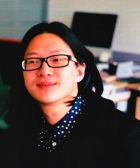Death and deities: A social cognitive perspective
A few experimental studies have attempted to identify the causal direction in the relation between death anxiety and religious belief, and while many of these studies find that religious individuals bolster their belief in the face of death, the critical data for non-religious individuals are far more equivocal. For example, Weisbuch, Seery, and Blascovich (2005), found that increasing “mortality salience” (i.e., death-related thoughts) led non-believers to further diminished religiosity, but Osarchuk and Tatz (1973) found no effect in this group. Norenzayan and Hansen (2006) similarly found no effect on non-religious participants but, interestingly, found that mortality salience increased Christians’ belief in non-Christian supernatural agents like Buddha and Shamanic spirits, suggesting that such belief serves a purpose beyond mere worldview defense.
Part of the explanation of the diversity of these findings may relate to the corresponding diversity of measures of religious belief, which variously assess behaviours, attitudes about religion, or even attitudes about attitudes about religion, which do not necessarily assuage death anxiety to the same extent, or at all. For example, Burling (1993) found no effect of mortality salience on individuals’ attitudes toward religion as a belief system (e.g., “It is necessary to have religious belief”), ignoring the critical distinction between thinking something is good or valuable and thinking that it is true. Indeed, mortality salience might well alter one’s inclination to believe in God, while leaving one’s opinion regarding the necessity of this belief (e.g., for salvation, for moral life) unchanged.
Even more important, the bulk of previous research relies on overt, usually unsubtle self-report measures of religious belief, and there are two reasons, well-established in previous social cognitive research, that the subtlety of a measure might affect experimental outcomes (e.g., Fazio & Olson, 2003; Wittenbrink & Schwarz, 2007). First, individuals might not want to report their own beliefs, either because their beliefs are socially undesirable, or because they are motivated to provide the experimenter with an answer that fulfills his or her expectations. For example, atheists who take pride in their rationalistic skepticism might be reluctant to report any increased inclination toward supernatural belief, especially in the context of a scientific experiment.
Second, individuals may not be able to report accurately on their own beliefs, because they may not be consciously aware of them or able to access them on demand (Nisbett & Wilson, 1977). It is near orthodoxy among social psychologists that some beliefs are held or formed automatically and even unconsciously, and that these beliefs may be independent of consciously held beliefs. This literature is now replete with “dual-process models” of cognition, which distinguish between conscious and unconscious cognition (e.g., Bargh & Chatrand, 1999; Chen & Chaiken, 1999; Dijksterhuis & Nordgren, 2006; Nosek, 1997; Sperber, 1997). Although there is still much empirical and theoretical work to be done on such models, it is clear that traditional self-report measures are inadequate to capture the full spectrum of how attitudes are represented and processed.


